Thursday, June 30, 2011
OPEN LETTER TO THE PRESIDENT OF THE COURT OF APPEAL - STILL AGAINST HIGH COST OF LITIGATION IN NIGERIA. WHO ARE THEJUDGES NOW WORKING FOR?
By my letter of 15th January 2008, I protested against high cost of litigation in the Court of Appeal. This followed the prescription of increased filing fees and the more objectionable imposition of penalty for late filing of court processes under the new Court Rules.
Refer also to my other two letters respectively of 29th of June 2010 and 19th July 2010 by which I protested high filing fees in the Court as well as penalty for default of filing processes. In the former letter, the President, after a review of my protest agreed that collection of N5000.00 (Five Thousand Naira only) with respect to filing of Notice of Appeal to the Supreme Court was illegal and directed that the collection be stopped forthwith. In its place, the President directed that the appropriate fee of N500.00 (Five Hundred Naira only) be collected henceforth.
In the latter of the two letters, which relates to my personal matter, I demanded for abrogation of penalty for late filing as well as a refund of the penalty I was made to pay in respect of the matter under reference. I concluded with threat of an action in court in the event of your failure to effect the refund and stop further collection of the penalty.
I was to learn soon after my letters that the rules were being reviewed. I was rather optimistic that my various protests might be considered in the review exercise and necessary changes reflected such that the practice of collecting penalty would be discontinued. I, therefore, held up my threatened action in court.
It will be recalled too that the letter of …………………..relating to Chief Thaddeus Inegbedion v NDIC, was a demand for a refund of N4,500.00 being excess payment for filing of Notice of Appeal to the Supreme Court. The Registry of the Court had refused to agree accept our view that we were only liable to pay N500.00. It however, agreed to refund the excess when it was confronted with relevant instruments. Yet, to date, no refund has been made despite repeated demands since 2008.
I have had the opportunity of looking at the new rules since they came into force in April 2011 and I regret to observe that the fees have not been changed. Rather, they remain at the commercial rate before the amendment.
I also observe with great trepidation that the penalty imposed without due authorization under the old rules have also been retained. I am therefore, impelled to continue with my protest against a commercial rate of fees as well as imposition of penalty for late filing not only in the Court of Appeal but in our courts generally under the rules of court.
Let me once more state the crux of my objection. Justice is a social service by the State to the citizenry. It is not yet known to be the intention of the State to treat it otherwise and begin to sell it to seekers of it as a commercial commodity. Even if the State had formed that intention, let it first be expressed in an Act of the National Assembly as a national policy for the Courts to enforce.
From my little knowledge of the law and practice of constitutionalism, and from case law, no member of the executive or of the judicial department can, in the exercise of his ministerial powers, lawfully impose a financial burden on the citizen of this country. And since the prescription of fees as well as the imposition of a penalty is a financial burden, it should be left for the representatives of the people in Parliament, (here in Nigeria, the National Assembly) to do. It amounts to a usurpation of the legislative function of the State for the Judge to enact a rule to extract money from the citizen.
I still stand convinced that under our system, it is out of order for the Chief Justice of Nigeria, The President of the Court of Appeal or the Chief Judge of the High Court of the State, s the case may be to make a rule in the exercise of his ministerial powers, for purpose of raising revenue for himself or for the State.
I stand convinced, if the large body of our case law is still anything to go by that unless the Constitution has directly authorised him to do so or indirectly, by permitting the National Assembly to enact a law authorising him to do so, none of these principal judicial officers of the State can lawfully enact any such provision.
And also going by the case law, since the constitutionality or legality of the action is being raised, the law requires that it is desirable to exercise caution in enforcing it. That the Court has chosen to ignore this position of the law since January 2008 and continue to enforce the provisions thereby collecting money that may ultimately turn out not to have been appropriated to it, or the State, it might be necessary to submit the matter to the Court officially for judicial review.
In considering this, I stand convinced, until I am proved otherwise, that the revenue realisable by the Court from fees and penalty is not money appropriated by an Act of the National Assembly to the Court. And if it is ultimately so adjudged, the collection of the fees and penalty will fall into the realm of ‘corrupt practices and abuse of power’ within Section 15(5) of the Constitution of the Federal Republic of Nigeria 1999 which “The State shall abolish”.
Since 2007 when the new regime of fees and objectionable penalty came into operation under the now defunct rules, I have had cause to discuss with several of my colleagues whose only courage lies in grumbling and gossiping but have failed to talk out. The various words they use to describe the new innovation are not what should be allowed to go into the print. But just a few that can be accommodated have it thus:- “These people” (i.e. the Justices of the Court of Appeal) “are not ready to work. They are after money” (or revenue) for the Court” or “They want money for welfare” or “If you want to get the silk, you have to be careful, these are the people who will comment on you” ……etc…..
It is sufficient to say from the comments that the Bar has been cowed down. And this is not good for both the law and the society. An unguarded Bench with a docile Bar will certainly impact negatively on law and society because the former does as it likes thereby unwittingly perpetrating the culture of impunity that Oguntade, JSC (Rtd) spoke against with passion in his various valedictory/thanksgiving lectures sometime ago.
With the benefit of watching the process of enforcement of the rules during proceedings in court, I can safely say without equivocation that the main concern now seems to be revenue generation. So, I hear, from the temple of justice (?), “Have you paid the penalty?”. I hear “How much did you pay?”. And I see the President of the intermediate appellate court of my otherwise great country picking up a receipt of payment from counsel, and with a calculator, calculating the sum due as penalty to confirm what counsel paid. And my spirit revolts within me. I witness this with utter disgust.
Until now, I had always said that money and justice cannot work together. One will pollute the other. It gives me great anxiety that I am witnessing it at my time. God who made the Judge only commanded him to “Hear the causes…” not count or calculate money; in open Court (?).
In a recent encounter at the High Court of Lagos State where collection of penalty has also become the driving force in the administration of justice, Jose, J. refused an application for waiver of penalty as well as extension of time to file a final written address out of time on account of the non payment of the penalty. Most interestingly, the learned trial Judge acknowledged that the motion, both for waiver and for extension, was not opposed by all the other counsel including Assistant Chief Legal Counsel from the Ministry of Justice of the Lagos State. According to her, “…although the motion is not opposed,…there is no provision under the rules for waiver”.
I recall that late Chief Fola Akinrinsola died in a motor accident a few meters to the Court in Ikeja. I have seen a lawyer collapsing at Court premises; some rushed out of Court to the hospital where he spends about two weeks. Obviously, it will take the litigant an extension of time to get himself properly back before the Court. But from the situation today, such litigant can not be heard on why he defaulted. He must pay that penalty to get justice because “There is no provision for waiver under the rules”. Sir, this is totally unacceptable. And I will keep saying it until the position is either reviewed by you or the Government of Nigeria tells us that justice is no more a social service but is now up for sale.
There are many other reasons why a party or counsel may not be able to file processes within the time allowed by the rules or ordered by the court. Such reasons are no less human than the reasons that may prevent a court or Judge from sitting occasionally or delivering judgment within three months (3) after address or still from releasing copies of judgments to parties within seven (7) days.
As stated above, even under the British system of Sovereignty of Parliament as against Nigeria’s Supremacy of Constitution, the authorities show that only Parliament can legislate to place a financial burden on the subject or sanction what is viewed as a contravention. It is an aberration that under our more superior system, a member of the third arm of government will in the exercise of a ministerial power unilaterally legislate an imposition of a financial burden on the citizen seeking justice in our courts. It will be a test of our practice of constitutionalism.
We can not all lower the standard. I expect that a judge who declines waiver because “no provision for it under the rules” should equally quip whether there is a provision under the Constitution or any law made pursuant to it enabling the President of the Court of Appeal or the Chief Judge of a State to impose and collect a penalty, and yet deprive a citizen of this Country his fundamental right to a fair hearing for failure or inability to pay such illegal penalty.
I see a serious contradiction under our system where a judiciary that has been known to rule out statutory provisions as well as executive actions which encroach on fundamental right of the citizen to a fair hearing can make a subsidiary legislation by way of rules of practice and procedure in our courts, even without an enabling provision, to take away the right to a fair hearing. I weep for my country, I weep for myself. And I weep for generations coming behind.
Perhaps, I should like to remind us that Nigeria is a republic which set out for a land “where no man is oppressed”. It is dangerous for any society to allow its judiciary to turn itself to an instrument of arbitrariness and oppression. It is also dangerous to allow the judiciary to evolve a policy that will invariably promote corruption to some level that might not have been contemplated. Experience has shown since the new rules in 2007 that the scope of corrupt practices have widened and level increased. It will be share hypocrisy for any member of the Bench and the Bar to pretend not to know this.
In the light of the foregoing, I still request by this letter that you review the rules by removing the provisions relating to fees and penalty which are fast becoming a hindrance to access to court and justice.
TAKE NOTICE that if after this letter, the rules are not changed I shall take out a process in a court of law for appropriate remedy including an order for account for all money collected so far since 2007 when the new regime of fees came into force.
In taking this course, I have not failed to consider the odds that I might be confronted with generally. But I look at an example from what a woman did in the Holy Bible when she rose to a challenge before her people “…and so will I go in unto the King, which is not according to the law: and if I perish, I perish”, See Esther 4:16.
Yours faithfully,
Johnson O. Esezoobo.
08033200595
Subscribe to:
Post Comments (Atom)





























































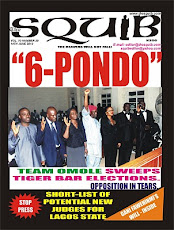


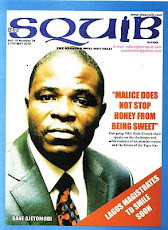

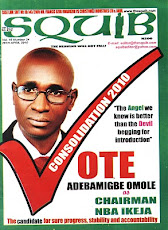
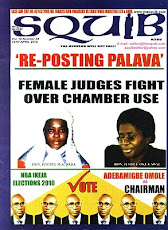
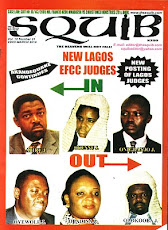
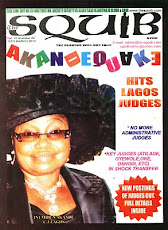


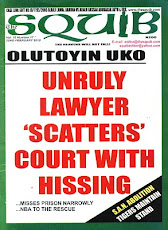
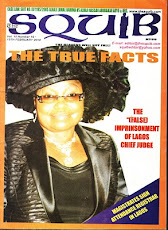
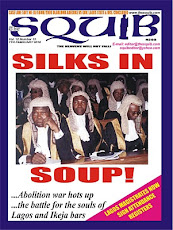


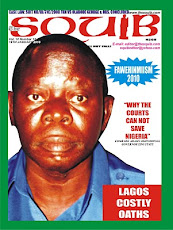
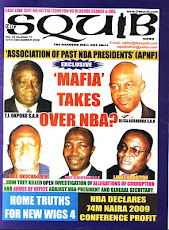
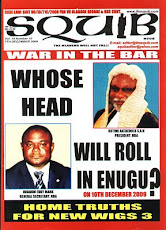

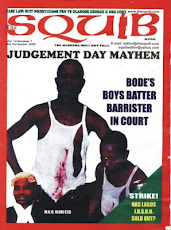
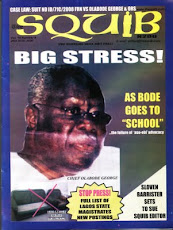

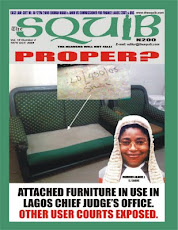




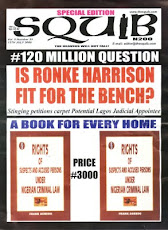
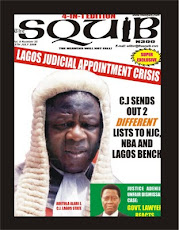
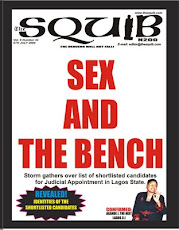


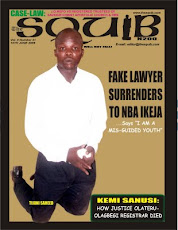
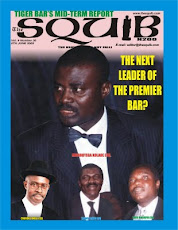
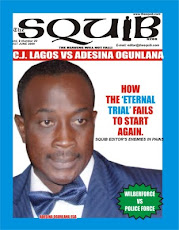
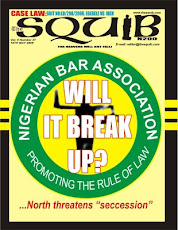
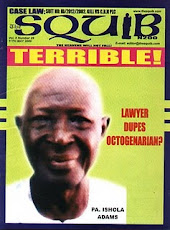




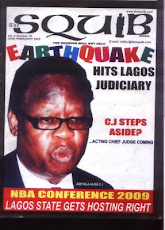
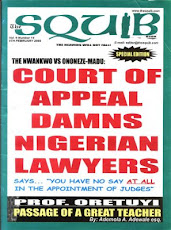








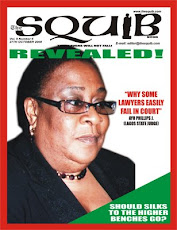
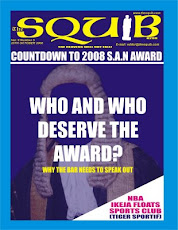
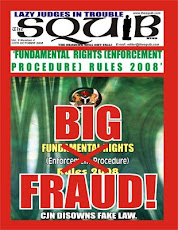
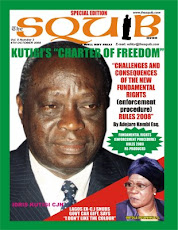
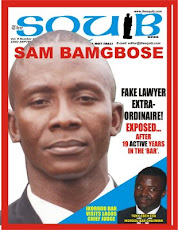


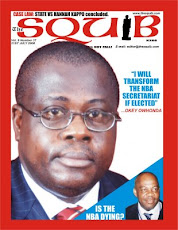
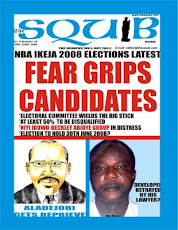
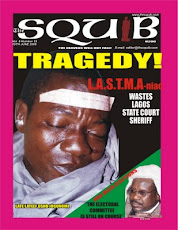
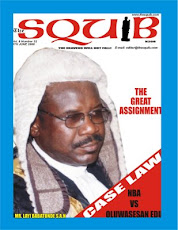
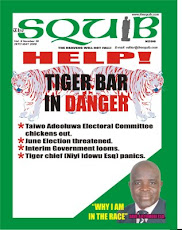
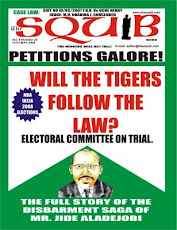
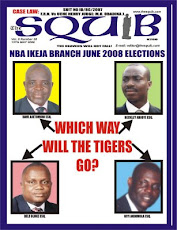
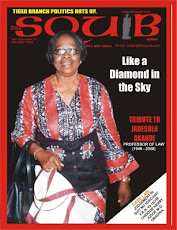
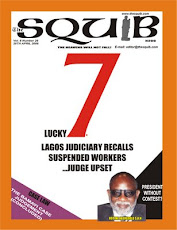

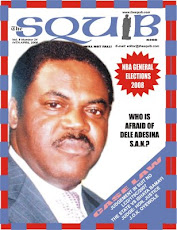

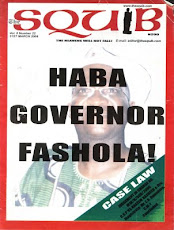
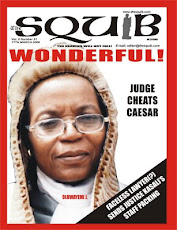
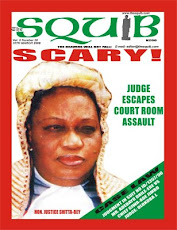




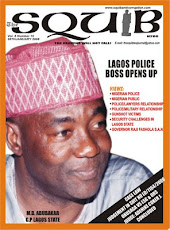
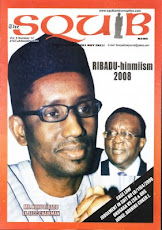
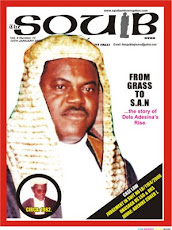









No comments:
Post a Comment